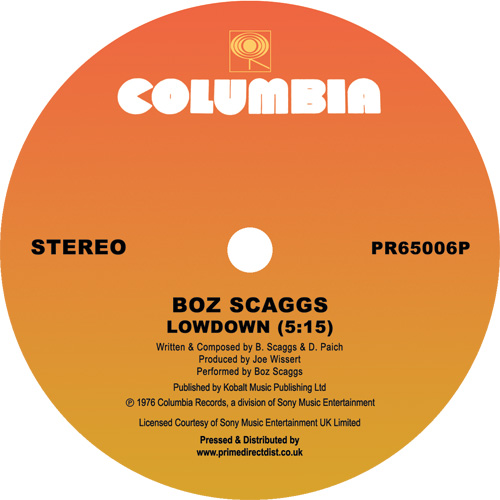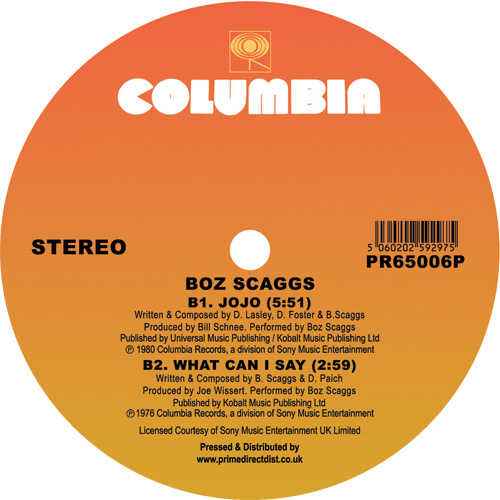Boz Scaggs (born William Royce Scaggs on 8 June 1944 in Canton, Ohio) is an American singer, songwriter and guitarist. He gained fame in the 1960s as a guitarist and sometimes lead singer with the Steve Miller Band and in the 1970s with several solo Top 20 hit singles in the United States, along with the #2 album, Silk Degrees. Scaggs continues to write, record music and tour.
After learning guitar at the age of 12, Scaggs met Steve Miller at St. Mark's School of Texas in Dallas. In 1959, he became the vocalist for Miller's band The Marksmen. The pair later attended the University of Wisconsin together, playing in blues bands like The Ardells and The Fabulous Knight Trains. Leaving school, Scaggs briefly left Texas to join the burgeoning rhythm and blues scene in London. After singing in bands such as The Wigs and Mother Earth, he recorded his first solo album Boz in 1965, which was not a commercial success. He traveled to Sweden as a solo performer and did a brief stint with the band The Other Side with fellow American Jack Downing and Brit Mac MacLeod.
Returning to the US, Scaggs promptly headed for the booming psychedelic music center of San Francisco in 1967. Linking up with Steve Miller again, he appeared on the Steve Miller Band's first two albums Children of the Future and Sailor, which won over critical reviews. After being spotted by Rolling Stone publisher Jann Wenner, Scaggs secured a solo contract with Atlantic Records in 1968. Despite good reviews, his first Atlantic album was met with lukewarm sales, as were followup albums on Columbia Records. In 1976, he linked up with session musicians who would later form Toto and recorded his smash album Silk Degrees. The album reached number 2 on the US charts and number 1 in a number of countries across the world, spawning three hit singles: "Lowdown", "Lido Shuffle", and "What Can I Say", as well as the MOR standard "We're All Alone", later a hit for Rita Coolidge. A sellout world tour followed, but his follow-up album, the 1977 Down Two Then Left, lacked the cohesion of Silk Degrees.
Scaggs' 1980 album Middle Man would spawn two top 20 hits, "Breakdown Dead Ahead" and "Jojo," and Scaggs would enjoy two more hits over 1980 and 1981 ("Look What You've Done to Me" from the Urban Cowboy soundtrack, and "Miss Sun" from a greatest hits set).
Scaggs continued to record and tour sporadically throughout the 1980s and 1990s, although he semi-retired from the music business and turned owner of the San Francisco nightclub Slim's. His lengthy hiatus from the music industry slowed his chart career down dramatically.
Scaggs recorded Other Roads in 1988, took another hiatus, and then came back in 1994 with Some Change. In the late 190s he released Come On Home, an album of blues, and My Time, an anthology. He garnered good reviews with Dig, although the CD, which was released on September 11, 2001, was lost in the post-911 melée. In May, 2003, Scaggs released But Beautiful, a collection of jazz standards that debuted at number 1 on the jazz charts.
In 2013 he released the album Memphis
Read more on Last.fm. User-contributed text is available under the Creative Commons By-SA License; additional terms may apply.


